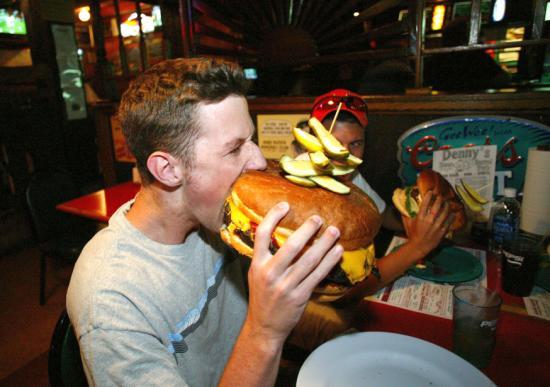- Joined
- Jul 24, 2008
- Messages
- 33,627
- Points
- 0
<TABLE id=msgUN border=0 cellSpacing=3 cellPadding=0 width="100%"><TBODY><TR><TD id=msgUNsubj vAlign=top>
 Coffeeshop Chit Chat - Get permission to eat and drink on train</TD><TD id=msgunetc noWrap align=right>
Coffeeshop Chit Chat - Get permission to eat and drink on train</TD><TD id=msgunetc noWrap align=right>
 Subscribe </TD></TR></TBODY></TABLE><TABLE class=msgtable cellSpacing=0 cellPadding=0 width="96%"><TBODY><TR><TD class=msg vAlign=top><TABLE border=0 cellSpacing=0 cellPadding=0 width="100%"><TBODY><TR class=msghead><TD class=msgbfr1 width="1%"> </TD><TD><TABLE border=0 cellSpacing=0 cellPadding=0><TBODY><TR class=msghead><TD class=msgF width="1%" noWrap align=right>From: </TD><TD class=msgFname width="68%" noWrap>kojakbt22 <NOBR>
Subscribe </TD></TR></TBODY></TABLE><TABLE class=msgtable cellSpacing=0 cellPadding=0 width="96%"><TBODY><TR><TD class=msg vAlign=top><TABLE border=0 cellSpacing=0 cellPadding=0 width="100%"><TBODY><TR class=msghead><TD class=msgbfr1 width="1%"> </TD><TD><TABLE border=0 cellSpacing=0 cellPadding=0><TBODY><TR class=msghead><TD class=msgF width="1%" noWrap align=right>From: </TD><TD class=msgFname width="68%" noWrap>kojakbt22 <NOBR>

 </NOBR> </TD><TD class=msgDate width="30%" noWrap align=right>7:01 am </TD></TR><TR class=msghead><TD class=msgT height=20 width="1%" noWrap align=right>To: </TD><TD class=msgTname width="68%" noWrap>ALL <NOBR></NOBR></TD><TD class=msgNum noWrap align=right> (1 of 3) </TD></TR></TBODY></TABLE></TD></TR><TR><TD class=msgleft rowSpan=4 width="1%"> </TD><TD class=wintiny noWrap align=right>19598.1 </TD></TR><TR><TD height=8></TD></TR><TR><TD class=msgtxt>Get permission to eat and drink on train
</NOBR> </TD><TD class=msgDate width="30%" noWrap align=right>7:01 am </TD></TR><TR class=msghead><TD class=msgT height=20 width="1%" noWrap align=right>To: </TD><TD class=msgTname width="68%" noWrap>ALL <NOBR></NOBR></TD><TD class=msgNum noWrap align=right> (1 of 3) </TD></TR></TBODY></TABLE></TD></TR><TR><TD class=msgleft rowSpan=4 width="1%"> </TD><TD class=wintiny noWrap align=right>19598.1 </TD></TR><TR><TD height=8></TD></TR><TR><TD class=msgtxt>Get permission to eat and drink on train
TRANSPORT Minister Raymond Lim makes no apologies for what some have called overly strict rules banning eating and drinking on the MRT.
In a written answer to a parliamentary question by MPs Cynthia Phua and Lim Wee Kiak, he stressed that the rule aims to ensure cleanliness and hygiene in the trains and stations.
He said those who might need to eat or drink for medical or special reasons could still do so, but should first approach MRT staff for permission. 'The MRT station staff are trained to exercise flexibility and judgment. Sometimes this may mean granting an exception; other times it may mean saying no.'
Both MPs asked about the tightening of the 'no eating and drinking' rule, following a recent case of a woman who was fined for eating a sweet on the train.
She had explained that she took it because she was feeling giddy and thirsty.
Her case had raised the ire of many, who complained the rules were too harsh. Most said simple things like having a sweet or a sip of water should not result in a fine.
Madam Phua and Dr Lim asked if exceptions could be made, like allowing the elderly to eat sweets to overcome motion sickness.
The minister said such incidents would be assessed on a case-by-case basis, but made it clear that leeway would be given only in exceptional cases.
'My ministry, and I am sure the operators as well, recognise that there could indeed be extenuating circumstances. However, these are exceptional situations rather than the norm. Practically, it would be impossible to comprehensively define such circumstances upfront.'
Mr Lim said operators stepped up enforcement recently after a surge in public complaints about such incidents.
There has been a rise in the number of commuters caught doing so. In 2006, 301 offenders were caught. The number rose to 581 in 2007 and 646 last year. In the first half of this year alone, 281 were caught.
The fines ranged from $30 to $500.
Despite the rise, Mr Lim said the proportion of offenders is low against the 1.5 million trips made each day.
</TD></TR></TBODY></TABLE></TD></TR></TBODY></TABLE>
TRANSPORT Minister Raymond Lim makes no apologies for what some have called overly strict rules banning eating and drinking on the MRT.
In a written answer to a parliamentary question by MPs Cynthia Phua and Lim Wee Kiak, he stressed that the rule aims to ensure cleanliness and hygiene in the trains and stations.
He said those who might need to eat or drink for medical or special reasons could still do so, but should first approach MRT staff for permission. 'The MRT station staff are trained to exercise flexibility and judgment. Sometimes this may mean granting an exception; other times it may mean saying no.'
Both MPs asked about the tightening of the 'no eating and drinking' rule, following a recent case of a woman who was fined for eating a sweet on the train.
She had explained that she took it because she was feeling giddy and thirsty.
Her case had raised the ire of many, who complained the rules were too harsh. Most said simple things like having a sweet or a sip of water should not result in a fine.
Madam Phua and Dr Lim asked if exceptions could be made, like allowing the elderly to eat sweets to overcome motion sickness.
The minister said such incidents would be assessed on a case-by-case basis, but made it clear that leeway would be given only in exceptional cases.
'My ministry, and I am sure the operators as well, recognise that there could indeed be extenuating circumstances. However, these are exceptional situations rather than the norm. Practically, it would be impossible to comprehensively define such circumstances upfront.'
Mr Lim said operators stepped up enforcement recently after a surge in public complaints about such incidents.
There has been a rise in the number of commuters caught doing so. In 2006, 301 offenders were caught. The number rose to 581 in 2007 and 646 last year. In the first half of this year alone, 281 were caught.
The fines ranged from $30 to $500.
Despite the rise, Mr Lim said the proportion of offenders is low against the 1.5 million trips made each day.
</TD></TR></TBODY></TABLE></TD></TR></TBODY></TABLE>


